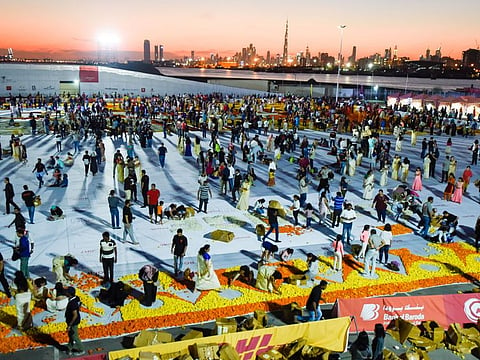Tolerance should be our only mantra
Coexistence comes through recognition of different cultures, and respect for others

The world celebrated the International Day for Tolerance on November 16, marking the day when the United Nations General Assembly (in 1996) invited member states to celebrate it. Among the celebrations this year was the World Tolerance Summit held in Dubai.
Tolerance is a moral principle of taste and virtue, as it is one of the obligations of freedom and respect for the freedom of the other. Therefore, it is the antithesis of radicalism and a remedy of the ideologies of extremism, hatred and violence whatever their source.
The importance of any state in the modern world stems from its attitude towards reconciliation and the consolidation of the values of tolerance as an important step in the stabilisation of social peace. This is a sum-up of the recent forum in Abu Dhabi, which came under the title “Human Brotherhood, the UAE Vision of a Tolerant World.”
Tolerance tops the list of good morals, which both religions and positivism emphasise. Eight working papers and eleven speakers in three sessions all focused on the UAE’s vision of a tolerant and cohesive world, which strengthens the common humanity and stands firmly against the intolerance and hatred.
The importance of this goal is highlighted by the fact that today’s world is suffering from a dangerous wave of intolerance and hate-based violence targeting the adherents of many religions. It is a matter of concern that these incidents have become very familiar, with hostile rhetoric being directed not only against religious groups but also against minorities, migrants, refugees and even women.
There is an important ‘functional’ impact that the value of tolerance plays in fighting a culture of intolerance and hatred. The root of this impact may be, first of all, the relationship between the state and the citizen, in which the values and practices of citizenship take root.
The meaning of the latter focuses on the relationship between the individual and the state as defined by the law of that state, including freedom and the accompanying responsibilities, with political, economic and social rights such as elections and the holding of public office — all of which are combined with justice, equality and equity.
This situation should be reinforced by the availability of media that supports the concepts of citizenship, unity and social cohesion, while avoiding the dissemination of any form of sectarian and ethnic hate discourses in news coverage and analysis, which is common in many media outlets, including some Arab satellite channelsProfessor As’ad Abdul Rahman
Necessary social symmetry
Hence the fundamental value of tolerance comes through recognition of different cultures, respect for the rights and freedom of others, recognition of the existence of different religions, and acceptance of different political ideologies. It is then that the values of good morals and behaviours embedded in national belonging and the feelings and practices of national unity create a necessary social symmetry that maintains the security and stability of society.
The experience of humanity has shown that any attempt to indoctrinate the state or characterise it as religious is the shortest path to religious rule.
To prevent this path, we are required today to focus on the issue of “renewal of religious discourse” which, despite numerous attempts, still requires a thorough review of ways and means to counter the escalating waves of hatred, extremism, violence, terrorism and accusations of blasphemy that are spreading under false claims of being derived from Islam (or any other religion).
The more the noble values of coexistence are practically embedded in the community, the more security and stability prevail and tolerance becomes the norm.
Discourse of hate
This situation should be reinforced by the availability of media that supports the concepts of citizenship, unity and social cohesion, while avoiding the dissemination of any form of sectarian and ethnic hate discourses in news coverage and analysis, which is common in many media outlets, including some Arab satellite channels.
We reiterate the need for a cultural climate to spread the values of a culture of tolerance, coexistence, acceptance and respect of the other in the present circumstances of the Arab world. Only through this culture, the features of national unity will firmly be entrenched.
It is a fact that the Arab world is not a single society, but multiple societies. We have always talked emotionally about their homogeneity, even though there are non-Arab ethnicities, in the light of the religious and sectarian diversity.
Rather than making this Arab environment a source of pluralistic enrichment that stimulates common giving, it has made it an environment of fertile soil in which religious ‘fundamentalism’ expands.
In contrast, one of the impressive examples whose successes need to be addressed is the reality of the UAE where various ethnic groups (large, medium and small) coexist with different languages and religious beliefs. They all contribute to the dissemination of the message of tolerance and coexistence.
— Professor As’ad Abdul Rahman is the chairman of Palestinian Encyclopaedia.


